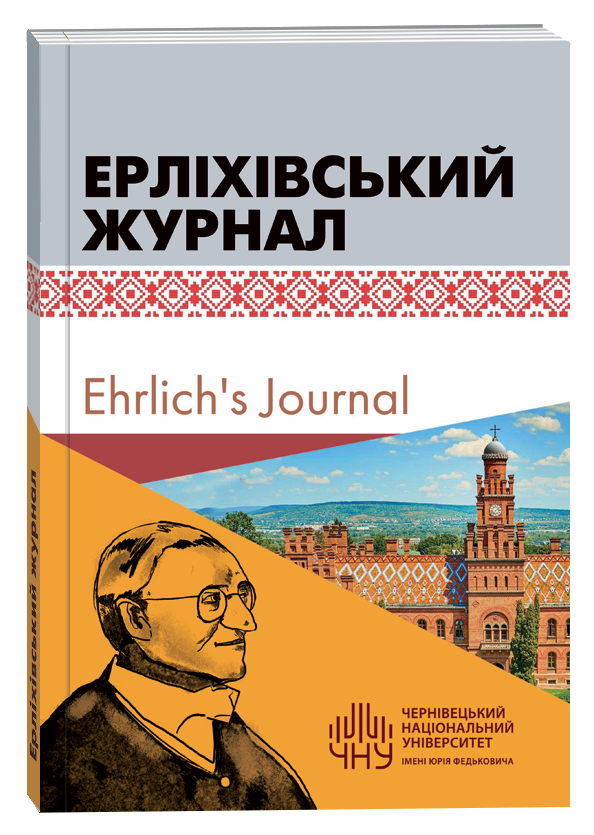MECHANISM OF INDIVIDUAL CRIMINAL BEHAVIOR
DOI:
https://doi.org/10.32782/ehrlichsjournal-2020-4.06Keywords:
crime; criminal behavior; mechanism of behavioral acts; criminal thinking; criminal willAbstract
Crime is a broad concept that encompasses a phenomenon detrimental to society and the state, exerting a destructive influence on a range of social relations. It is not a secret that understanding and conscious perception of individual criminal acts are necessary for reducing crime, which is of great importance to the field of criminology. One of the most relevant issues is understanding the process of the emergence of criminal behavior in individuals, the essence of the determinative complex’s influence on specific criminal offenses, the role of personal characteristics in future criminal behavior, and the impact of external circumstances on the emergence, existence, and development of criminal phenomena in individual behavior. The article analyzes the category of “mechanism of individual criminal behavior” and provides its own definition. It is established that the mechanism of individual criminal behavior consists of sequential stages. These stages include needs satisfied through criminal means, criminal thinking, and criminal will. It is argued that both internal and external factors influence the formation of each stage. Special attention is given to the factors influencing the formation of criminal thinking and criminal will, which ultimately lead to the commission of socially dangerous acts by individuals. It is argued that the stages of the mechanism of criminal behavioral acts cannot exist without objective-subjective factors. It is proven that in order for needs to be satisfied through criminal means, they must be actualized in corresponding situations. The study establishes that criminal will occupies a central place in the mechanism of criminal behavioral acts. Volitional processes are responsible for the actualization of plans and the transition from the individual’s mental state to concrete actions. It is emphasized that criminal thinking serves as the foundation for criminal will. Special attention is given to the disclosure of the structure of volitional processes, including the establishment of purposeful behavior through thinking, the process of motivation, and the act of decision-making. It is argued that after the act of decision-making – the final element of criminal will – the presence of a psychophysical state of criminal behavioral act in an individual, namely criminal predisposition, can be observed, which should be considered as the basis and regulator of volitional behavioral acts, in our opinion.
References
Mekhanizm individual’noyi zlochynnoyi povedinky. URL: https://pidruchniki.com/81558/pravo/mehanizm_individualnoyi_zlochinnoyi_povedinki
Individual’na zlochynna povedinka. URL: https://visnikkau.webnode.com.ua/news/individualna-zlochinnapovedinka
Bandurka, O.M. Mekhanizm zlochynnoyi povedinky. Visnyk Kryminolohichnoyi asociatsiyi Ukrayiny. 2016. № 3 (14). S. 110–119.
Medvedev V.S. Kryminalna psykholohiya: Pidruchnyk. Kyiv : Atika, 2004. 368 s.
Zelinskiy A.F. Kryminalna psykholohiya. Kyiv : Yurinkom Inter, 1999. 240 s.
Uznadze D.M. Eksperymental’ni osnovy psykholohiyi ustanovky. Tbilisi : Vydavnytstvo Akademiyi nauk Hruzyns’koyi RSR, 1961. 210 s.
Maslow A. A Theory of Human Motivation. Psychological Review. 1943. № 50. P. 370–396.
Starko O.L. Umysne vbyvstvo matir’yu svoєї novonarodzhenoі dytyny (kryminal’no-pravove ta kryminolohichne doslidzhennya): monohrafiya. Lutsk : Volyn. Nats. un-t im. Lesi Ukrayinky. 2009. 188 s.
Baxter S. Women and Politics: The Visible Majority. M. Lansing. University of Michigan Press, 1983. P. 59.
Zakaliuk A.P. Kurs suchasnoyi ukrayins’koyi kryminolohiyi: teoriya i praktyka : U 3 kn. Kyiv : Vydavnychyy Dim “In Yure”, 2007. Kn. 1: Teoretychni zasady ta istoriya ukrayinskoyi kryminolohichnoyi nauky. 424 s.
Bed’ V.V. Yurydychna psykholohiya: navch. posib. 2-he vyd., dop. i pererobl. Kyiv : MAUP. 2004. 436 s.
Holovatiy M.F. Sotsiolohiya molodi: kurs lektsiy. Kyiv : MAUP, 1999. 224 s.
Nadirashvili Sh.A. Ustanovka ta diyal’nist’. Tbilisi : Vydavnytstvo “Metsniereba” 1987. 361 s.







